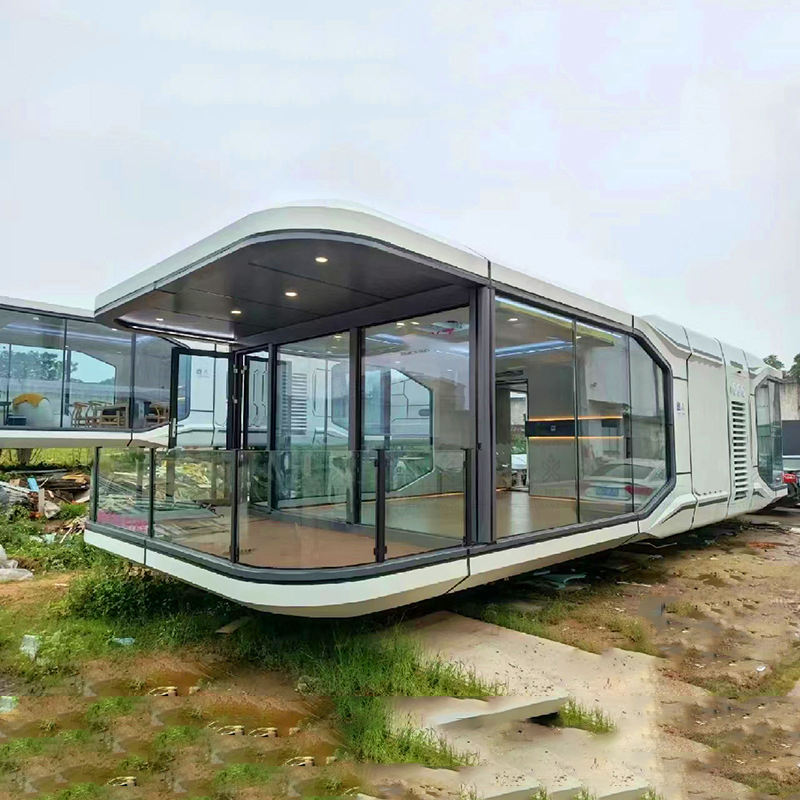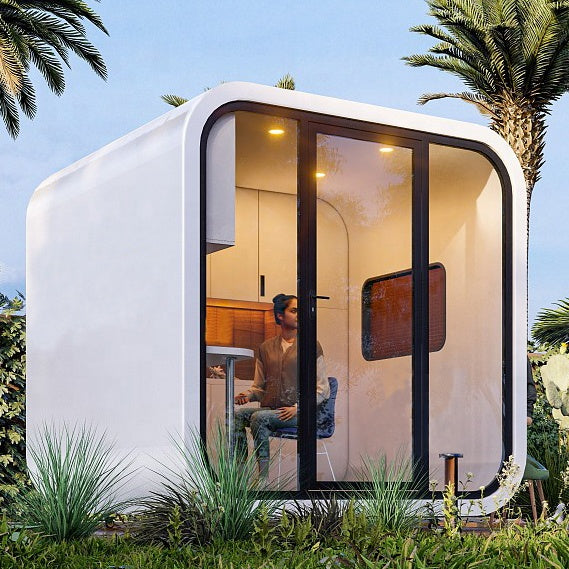How Capsule Homes Australia Offer Innovative Solutions for Affordable Housing
How Capsule Homes Australia Offer Innovative Solutions for Affordable Housing
Blog Article
Why Modular Houses Are the Future of Sustainable Living
Modular homes are significantly recognized as a critical solution for lasting living, providing a blend of effectiveness, cost-effectiveness, and ecological advantages. Their building in regulated settings substantially decreases waste and boosts precision, while the potential for incorporating innovative energy-efficient systems positions them as a forward-thinking option in real estate. The versatility of modular layouts allows for the assimilation of sustainable technologies and products customized to individual demands. As we navigate the challenges of urbanization and ecological sustainability, one have to think about just how these homes can redefine our method to living rooms.
Ecological Advantages of Modular Residences
The ecological advantages of modular homes stand for a substantial action towards sustainable living. These homes are built in controlled factory settings, which considerably decreases waste produced throughout the structure process. By enhancing materials and lessening excess, modular building and construction adds to a much more effective use of resources compared to typical structure approaches.
In addition, modular homes are frequently made with power performance in mind. Lots of integrate sophisticated insulation strategies, energy-efficient home windows, and sustainable materials, contributing to reduced energy consumption. This can result in reduced greenhouse gas discharges over the life-span of the home, boosting its general environmental profile.
The capability to transport and put together modular components on-site likewise reduces the carbon impact connected with building and construction logistics. Numerous modular homes are built to be versatile and conveniently upgradeable, allowing home owners to carry out lasting innovations, such as solar panels and energy-efficient home heating systems, over time.
Eventually, the ecological benefits of modular homes not just advertise lasting living but likewise urge a more accountable strategy to housing advancement, straightening with worldwide efforts to deal with environment change and protect natural deposits for future generations.
Cost-Effectiveness and Affordability
Structure a home usually represents one of the biggest financial investments individuals make in their life time, and modular homes supply a compelling remedy for those looking for cost-effectiveness and affordability. One of the main advantages of modular homes is their reduced building and construction costs compared to typical site-built homes. The structured production procedure permits significant financial savings on labor and materials, which equates to decrease prices for consumers.
Furthermore, modular homes usually have much shorter building and construction timelines. This not just lowers expenses associated with funding and insurance but also reduces the threats related to inflation and varying market conditions. Numerous customers locate that modular homes can be tailored to fit their spending plans without sacrificing top quality or style.
In addition, power performance is commonly constructed into the style of modular homes, resulting in decreased energy costs gradually. Many producers prioritize lasting materials and techniques, additionally improving the long-lasting financial practicality of these homes. Generally, the combination of initial price financial savings, fast building and construction, and continuous energy efficiency makes modular homes an eye-catching option for those aiming to buy sustainable living without damaging the financial institution.
Efficiency in Building And Construction
Modular homes not only offer economic advantages yet additionally master building efficiency. The modular building process involves the synchronised building of components in a manufacturing facility setup while site prep work occurs simultaneously. This identical strategy substantially decreases the total timeline from conception to conclusion, frequently reducing building time by up to half compared to conventional techniques.
Furthermore, factory-controlled atmospheres boost high quality assurance. By making use of precision production strategies, modular homes are developed to precise specifications, lessening waste and mistakes. This consistency not only results in a better product yet also adds to sustainable methods by reducing material waste during construction.
Furthermore, using modern technology and automation in the production about his procedure permits for quicker assembly and decreased labor prices. Once the components are carried to the website, they can be efficiently put together, additionally quickening the timeline. This streamlined procedure is not just beneficial for building contractors but additionally minimizes interruptions to the surrounding setting throughout building and construction.
Personalization and Layout Adaptability
An impressive range of personalization alternatives distinguishes modular homes, allowing property owners to tailor their living areas to satisfy particular requirements and preferences. This style versatility is a trademark of modular building, making it possible for customers to choose whatever from flooring plans and space designs to components and coatings. Unlike typical homes, modular layouts facilitate a joint strategy where architects and contractors work closely with homeowners, ensuring that each aspect straightens with visual wishes and specific way of lives.
Moreover, modular homes can be conveniently reconfigured or increased, accommodating transforming household dynamics or advancing personal tastes. This flexibility not only enhances the home's capability however likewise contributes to lasting sustainability, as house owners can modify their rooms instead of look for new real estate services.

Future Patterns in Lasting Housing
Emerging patterns in sustainable real estate are reshaping the landscape of residential building, stressing green methods and innovative modern technologies. One considerable trend is the combination of wise home innovation, which enhances power efficiency with automated systems that optimize and keep an eye on energy intake. This not only decreases energy prices yet also adds to a lower carbon impact.
Additionally, the usage of lasting materials is coming to be increasingly typical. Contractors are choosing for recycled, in your area sourced, or swiftly sustainable products, which minimize environmental impact and support regional economic climates. Modular homes are gaining appeal hohabitats modular home for their reduced waste during construction and their versatility to different terrains and environments.
Another trend is the consolidation of eco-friendly roofings and living wall surfaces, which improve air top quality and give all-natural insulation. These attributes also advertise biodiversity in metropolitan locations.
Verdict
In conclusion, modular homes arise as an essential solution for sustainable living, offering substantial environmental advantages with reduced waste and energy performance. As patterns in lasting see post housing evolve, modular homes are poised to play a critical function in promoting green living methods for future generations.
Structure a home commonly represents one of the largest economic investments individuals make in their life time, and modular homes provide an engaging remedy for those looking for cost-effectiveness and cost. One of the key advantages of modular homes is their reduced building prices contrasted to standard site-built homes. Generally, the combination of preliminary price savings, quick building and construction, and ongoing power efficiency makes modular homes an appealing alternative for those looking to invest in lasting living without breaking the financial institution.
Inevitably, the personalization and layout adaptability used by modular homes ensure that they are not just frameworks, yet personalized havens that reflect the special identifications of their occupants while promoting sustainable living methods.

Report this page